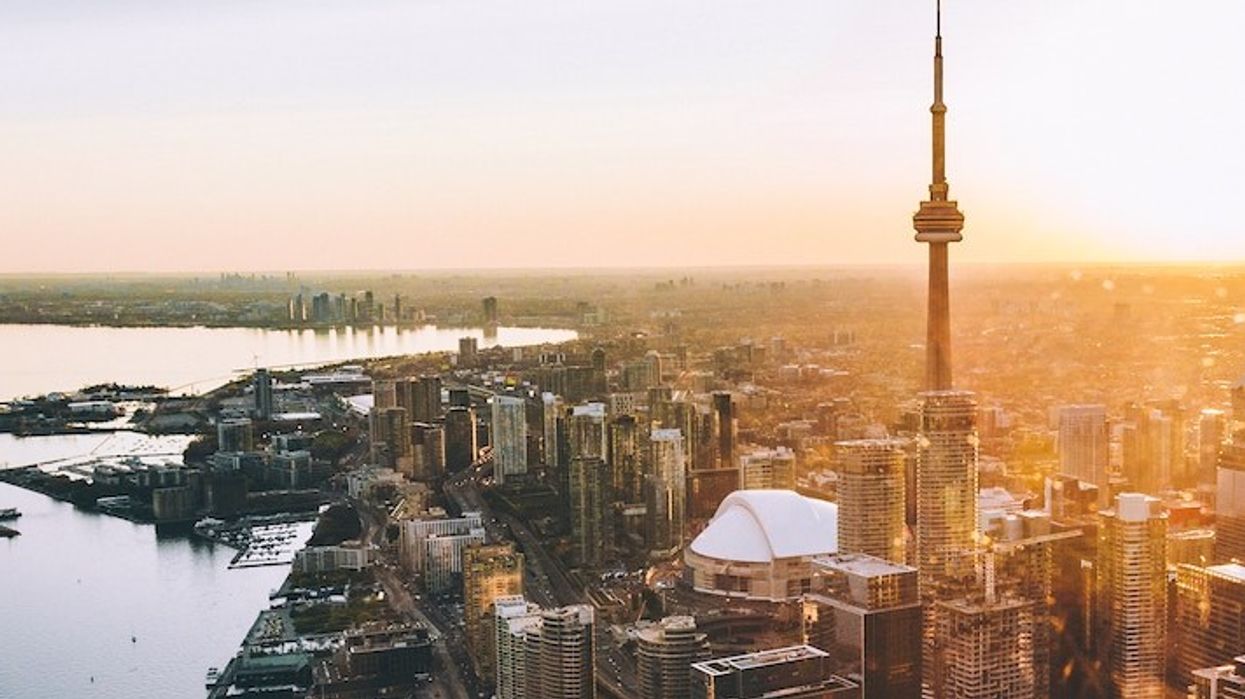Toronto never looked so good.
Facing the prospect of having a two-week holiday in Morocco turn into indefinite exile does wonders for a veteran Hogtown critic like me. Not that there’s anything wrong with the North African nation; indeed, it has much to recommend it. The people are gracious -- even nomads who remain completely unaware of the Great White North -- and the Moroccan landscape, especially the Sahara Desert, is not easily forgotten.
READ: Canada and US Temporarily Closing Border to All “Non-Essential” Traffic
But because of COVID-19, Canadians abroad -- including myself -- suddenly found themselves abandoned thousands of kilometres from home. The Canadian Embassy in Rabat was singularly unhelpful; even, it seemed, hostile. Though, of course, while it was impossible to speak to anyone over the phone, it was possible to register on-line.
The result was a series of emails that essentially summed up the situation: we were on our own and shouldn’t expect help from Canadian diplomats.
According to an email sent out by the Canadian Embassy on Monday, March 16: “Currently, the best option to return to Canada is through a third country offering a commercial flight. A limited number of flights to Europe from multiple cities continue to be posted online. Seats on these flights are booked quickly, and we recommend that you check those companies’ websites and social media accounts as frequently as possible for new updates….”
If that weren’t enough, Canadians unable to book a flight home were told that their “priority should be to find a safe place where you and those traveling with you can stay until restrictions are lifted. Make sure you have what you may need in terms of money and necessities such as food and medicine.”
“Should you run out of a medicine,” these masters of the obvious stated, “we recommend that you contact your doctor in Canada or in your usual country of residence to obtain a copy of your prescription. You can then check with local pharmacies to obtain the medicine you need or an alternative.”
Thanks, guys. How very helpful. Other than reminding us of what most had already grasped, the embassy had nothing to contribute to the growing panic of Canadians worrying that they might be stuck abroad for weeks. Morocco is an easy country in which to spend time; locals are friendly and by this country’s standards, goods and services cheap. But hotel costs and eating out for two weeks or more gets expensive.
As for Air Canada, which cancelled our return flight three days ahead of time, it was MIA. Needless to say, getting someone to speak to was impossible and the airline had no alternatives to suggest. In the end, we got seats on what seemed to be the last flight out of Casablanca, a Royal Air Maroc flight to JFK Airport in New York, on Monday. From one almost deserted airport to another, the sense of impending doom was unavoidable. In Marrakech, frustrated airport crowds were shouting in anger. But Casablanca was deserted. Where was everyone? JFK was also empty. Manhattan seemed a ghost town, eerily, even scarily, so.
But by the time we landed in the US, cleared customs and collected our baggage it was nearly 9 pm. No flights to Toronto were available, and those that had been were selling for as much as $5,000 (US).
It was either a night in the Big Apple – under normal circumstances something to look forward to – or taking a Greyhound bus from the Port Authority, unarguable the most unpleasant place in Manhattan (especially late at night), a place where police outnumber the homeless. There was nothing else to do. The ride was relatively cheap; on the other hand it was 12-hours long, with stops in Syracuse, Batavia, Rochester (or as New Yorkers pronounce it, Ratchester), and other up-state towns where each bus terminal is more depressing than the next, where row upon row of noisy idling tractor trailers spend the night and foul the air, each one a living coffin for its indentured driver.
Could this be why so many Americans support a man like Donald Trump? Against the backdrop of the latest pandemic, this ride through America’s landscape of despair and crushing poverty felt like an escape from some exurban hell.
Canadians on the bus made no secret of their happiness at reaching the border after Buffalo. The surly border guards were now old friends, part of our tribe, not theirs. After that the QEW felt like the Yellow Brick Road. The banality of Niagara Falls suddenly seemed charming. The unrelieved ugliness of Toronto’s ever-expanding outskirts brought a smile to our grimy, greasy faces. Even the bus terminal at Dundas and Bay, dismal and dreary, temporarily transformed into a happy place.
As cheesy as it sounds, it’s true; there really is no place like home.





















